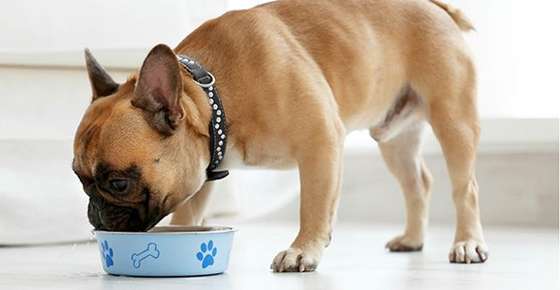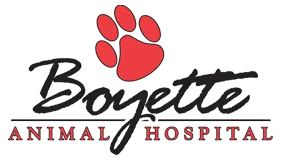
Fiber is important because it helps dogs feel full, supports natural, healthy digestion and aids in moving material through their digestive tract. Is there fiber in your pet's food bowl with each meal? Does your pet need fiber, or more fiber? Grains like wheat, barley, corn and rice contribute small amounts of fiber to pet foods. Pets require adequate amounts of fiber in their foods.
What Should I Feed My Dog by veterinarian Ron Hines, discusses the importance of supplying fiber for your pet during feeding. "The diet of normal adult dogs should contain between 2.5 and 4.5 percent fiber. However, the fiber content of some "diet" dog foods is between nine and 10 percent. This may allow the dog to feel full without consuming too many calories for effective weight control. Diets high in fiber also help in the management of blood sugar (hyperglycemia) and the prevention of such disorders as intestinal diverticulosis and diabetes. Too much fiber in your pet's diet can interfere with the digestion of other important nutrients in the food and result in loose stools, frequent defecation, and reduced palatability of the dog food."
As a whole, dogs eat less frequently than cats and they also usually eat larger meals. Feeding adult dogs twice or once daily can be alright, but remember that pups require feeding often. Dogs in homes with free-feeding practices should be fine if the dog is not gaining weight. Ask your veterinarian at each visit about your free-feeding pet's weight to be sure it's on track, healthy and providing them the best health benefits. "What and when you feed your dog early in life will shape its preferences when it is older. This applies to time of day, odor, texture, taste and meal temperature," advises Dr. Hines.
James Glover's Sources of Dietary Fiber for Dogs suggests that fiber be introduced gradually to avoid any tummy troubles that could result from adding large quantities of bulk quickly. He suggests replacing some your current regular food with carrot, pear, banana, non-spicy pepper or high-quality bran. Glover notes that owners must be alert to the fact that everyday foods like onions, raisins, fruit pith and grapes can be "highly toxic" to dogs.
As Dr. Hines suggests, avoid adding too much fiber too fast. You may add in a one-inch chopped slice of apple or pear, cooked sweet potato, cooked yam or baked turnip to the food bowl, after several such meals, add in a chopped two-inch slice of the above. Remember that you can mix and match the fiber sources you feed your pet after its tummy has become accustomed to receiving more fiber each day.
Keep in mind that you don't want your pet to experience loose bowel movements, watery stool or diarrhea. What you do want is for the stool to be firm, moist and have good shape. When your dog has the proper amount of fiber, you'll notice that the pooch doesn't strain while leaving a "present" in your backyard. Bowel evacuation will be natural, pleasant and smooth for your pet. It is critical that you always have fresh water available in multiple locations for your dog. Water helps route nutrients through a dog's body, push out toxins and release substances that are no longer needed by your dog's body.
Veterinarian Jan Becker suggests that dog and cat owners be aware of the benefits of both soluble and insoluble fiber in their pet's food diet. Soluble fiber, she suggests, is "mainly for bulk and helps push through such digested particles as hair" ingested during animal grooming. Soluble fiber can increase stool bulk and contributes to preventing that unhappy experience of constipation. Insoluble fiber contributes these - and more. The insoluble fiber you provide for your pet helps maintain the proper balance of natural, healthy bacteria in the digestive tract.
